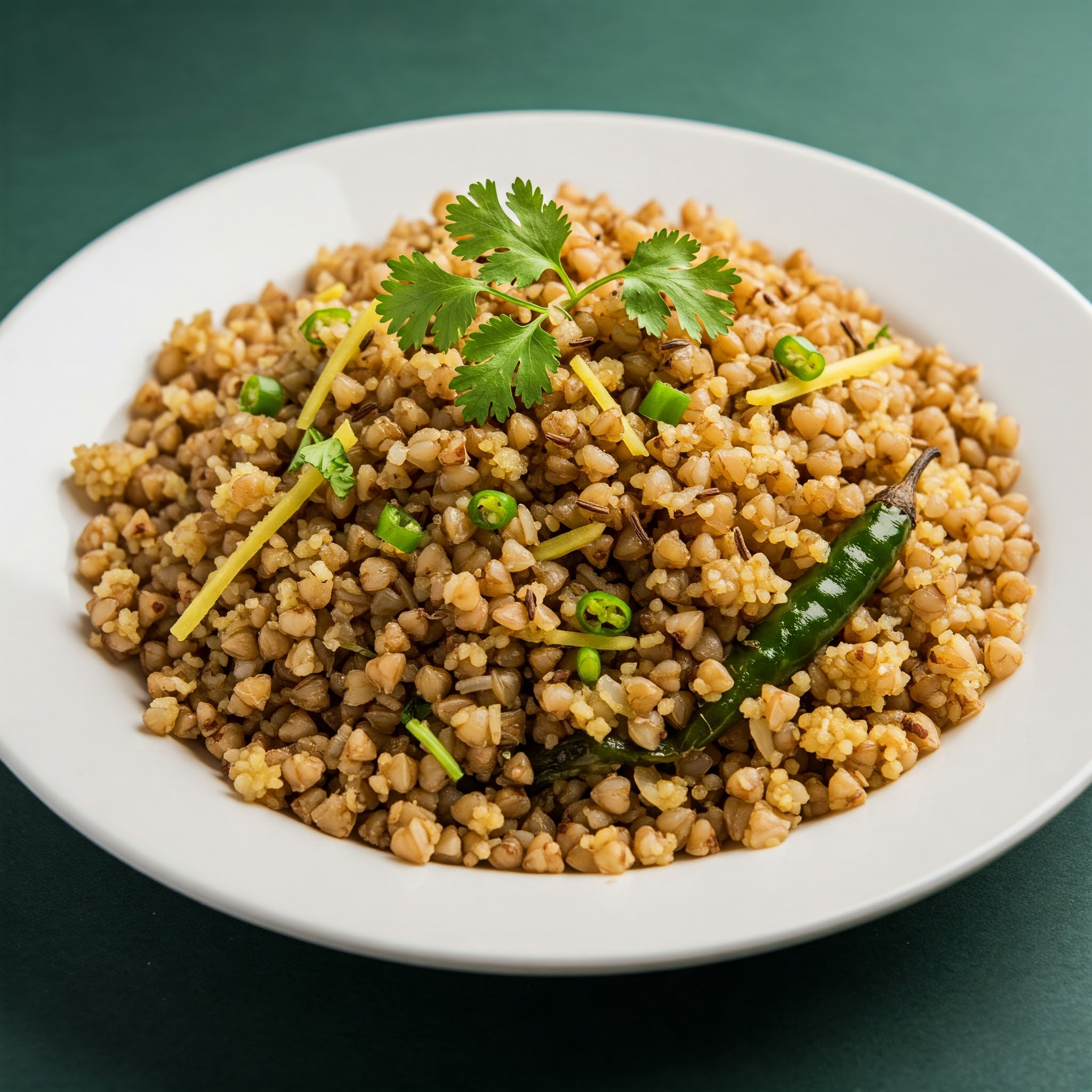Jowar (ज्वार)
Sorghum, Great Millet, Cholam

About Jowar
Jowar: The Nutrient-Packed Grain for Vibrant Health!
Jowar, a cherished gem of Indian agriculture, sways gracefully in golden fields, embodying the essence of nourishment and tradition. Known as "Sorghum," this ancient grain is not just a staple; it is a source of vitality, providing a rich tapestry of nutrients, including protein, fiber, and essential minerals. Its gluten-free nature makes Jowar a beloved choice for those seeking wholesome alternatives in their diets.
In the kitchen, Jowar transforms into a myriad of delectable dishes, from fluffy rotis to savory porridge and crispy snacks. Each bite is a celebration of flavor, connecting generations through cherished recipes passed down through time. Jowar’s high fiber content promotes digestion and keeps you feeling satisfied, making it a perfect ally for weight management.
Moreover, this versatile grain thrives in diverse culinary creations, enriching everyday meals with its nutty taste and unique texture. With its abundance of antioxidants, Jowar also plays a vital role in supporting heart health and boosting immunity.
To include Jowar in your daily menu, log on to planmeal.com. Our automatic meal planner seamlessly integrates this super grain into your meals, ensuring you enjoy its numerous benefits while exploring new recipes.
Embrace the power of Jowar, where tradition meets health, and nourish your body with every meal.
**“Jowar: A journey of flavor and health!”**
Jowar is an important grain due to its rich nutritional profile, providing essential nutrients like protein, fiber, vitamins, and minerals. It is gluten-free, making it suitable for individuals with gluten sensitivities. Jowar supports digestive health, aids in weight management, and contributes to heart health, making it a valuable addition to a balanced diet. Also Jowar is often used in the form of porridge or flour to help alleviate digestive issues and boost energy levels. Its high fiber content can promote regular bowel movements, making it beneficial for those experiencing constipation.
How to Store Jowar
To store Jowar, first ensure it is completely dry to prevent mold. Place the grains in an airtight container, such as a glass jar or a heavy-duty plastic bag, to protect them from moisture and pests. Keep the container in a cool, dark place, ideally at temperatures between 50-70°F (10-21°C).
Avoid exposure to direct sunlight and humidity, as these can degrade the quality of the grains over time. Regularly check for any signs of spoilage, such as unusual odors or pests, and use the Jowar within 6 to 12 months for optimal freshness.
Shelf Life of Jowar
Jowar has a shelf life of about 6 to 12 months when stored in a cool, dry place in an airtight container. For best quality, check regularly for signs of moisture or pests.
How to Check Jowar Before Buying
When checking Jowar before purchasing from a local vendor, first inspect the grains for uniform size and a clean, bright appearance. Avoid any that are discolored, broken, or have an off smell, as these may indicate spoilage or poor quality. If possible, feel the grains; they should be dry and free from moisture. Inquire about the harvest date to ensure freshness.
Procuring Jowar in bulk can be advisable if you have adequate storage. Jowar has a good shelf life when stored properly in a cool, dry place in an airtight container. Buying in bulk can also be cost-effective, but ensure you will consume it within 6 to 12 months to maintain quality. Always check regularly for any signs of pests or moisture to ensure your stored grains remain fresh.
Explore
Explore our services and take your business to the next level.
Recent Posts

Spiced Buttermilk is the perfect addition to your weekly menu, offering a refres...

Kuttu Ke Chawal (Buckwheat Rice) is the perfect dish to add variety to your week...

Matki Chi Rassa Bhaji is a flavorful and nutritious addition to your weekly meal...

Bajra Dosa is a wholesome and satisfying dish that makes a perfect addition to y...

Bajra Veggie Tikki is the perfect addition to your weekly meal plan, offering a...
Ready for a Healthier You?
Take control of your wellness! Get a customized meal plan that fits your lifestyle. It's time to eat smarter, feel better, and transform your life!
Get Your Plan Now!Already a member? Login and start now!
Nutrition Facts
Serving Size:
Servings Per Container: 1
| Amount Per Serving | ||
|---|---|---|
| Calories | 334.13 | |
| Fat | ||
| Saturated Fat | ||
| Trans Fat | ||
| Cholesterol | 0 | |
| Sodium | 7.56 | |
| Carbs | 67.68 | |
| Fiber | ||
| Sugar | 0 | |
| Protein | ||
| VitaminD | ||
| Calcium | 27.6 | |
| Iron | 3.95 | |
| Potassium | 268 | |
* Percent Daily Values are based on a 2000 calorie diet.
* Percent Daily Values are based on a 2000 calorie diet.

